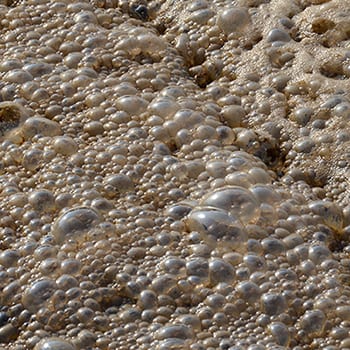Why Defoamers Are Essential in Water Treatment and Waste Management
Why Defoamers Are Essential in Water Treatment and Waste Management
Blog Article
The Role of Defoamers in Enhancing Item Top Quality and Performance
Defoamers serve as crucial ingredients that alleviate this concern, ensuring smoother manufacturing workflows while improving the useful and visual characteristics of the last items. The selection of the proper defoamer can be essential to achieving optimum outcomes, increasing crucial inquiries about formula compatibility and efficiency metrics that warrant further exploration.
Recognizing Defoamers
Understanding the role of defoamers is crucial for maintaining product quality across different markets. Defoamers are chemical ingredients made to decrease and stop the formation of foam in fluid systems, which can negatively impact procedures such as mixing, loading, and surface stress. Frothing can bring about inadequacies, item issues, and jeopardized visual appeal, making defoamers a crucial component in manufacturing operations.
In industrial applications, defoamers help to enhance item consistency and stability. The effective usage of defoamers not just guarantees smoother production processes yet likewise adds to premium product performance.
Additionally, the selection and formulation of a defoamer must straighten with certain application needs, such as compatibility with various other components, efficiency under differing temperature level and pH problems, and possible regulative constraints. Inevitably, recognizing defoamers' features and their importance in numerous formulas is essential for optimizing production and guaranteeing the greatest quality final product.
Kinds Of Defoamers
Defoamers can be categorized into a number of kinds based on their composition and mechanism of activity. The primary kinds include silicone-based, non-silicone natural, and not natural defoamers.
Silicone-based defoamers are among the most effective, largely as a result of their capability to spread out promptly on the fluid surface and interrupt foam development. Their distinct chemical framework permits exceptional security, making them ideal for high-temperature applications and atmospheres with differing pH levels.
Non-silicone natural defoamers, usually composed of natural oils or fats, are valued for their biodegradability and lower toxicity. These are usually made use of in food and drink applications where safety and environmental effect are paramount.
Inorganic defoamers, that include compounds like talc or calcium carbonate, act by raising the density of the fluid, consequently decreasing foam security. They are often utilized in industrial processes where compatibility with other products is not an issue.
Each type of defoamer has unique advantages and constraints, enabling tailored solutions depending on the particular frothing concerns run into in numerous applications. Comprehending these distinctions is important for maximizing efficiency and achieving wanted product high quality.
Applications Across Industries
Various markets take advantage of defoamers to improve item top quality and functional effectiveness. In the food and beverage sector, defoamers are essential in processes such as brewing and milk manufacturing to avoid foam development, which can cause inadequacies and item inconsistency. By managing foam, makers can guarantee far better return and a much more uniform item.
In the pharmaceutical market, defoamers play a crucial role in the solution of liquid medications, where too much foam can restrain mixing and accurate application. Their use assists keep the stability get redirected here of the formulations and helps with smoother production procedures.
The paint and finishings industry additionally relies upon defoamers to enhance the efficiency of items throughout application. By minimizing foam, these ingredients guarantee a smoother coating and enhance the visual top qualities of the end product.

Advantages of Making Use Of Defoamers
While the application of defoamers varies throughout sectors, their benefits continually improve product top quality and procedure performance. One substantial benefit is the reduction of foam formation throughout producing processes, which can or else cause production hold-ups and variances in product top quality. By minimizing foam, defoamers make it possible for a smoother circulation of materials, facilitating more efficient procedures and minimizing the likelihood of tools malfunctions.
Furthermore, the use of defoamers can boost the appearance and structure of end products. In sectors such as coatings, paints, and food processing, extreme foam can compromise the aesthetic aesthetic appeals and total quality, while the suitable defoamer application ensures an uniform surface and preferable characteristics. Defoamers can contribute to set you back financial savings by reducing waste during production and enhancing the use of raw products.

Picking the Right Defoamer
Picking the best defoamer is vital for optimizing production processes and ensuring product quality. The option of defoamer influences not just the effectiveness of foam control however likewise the overall performance qualities of the end product. Variables to think about include the kind of my website application, the chemistry of the formula, and the ecological problems under which the item will certainly be utilized.
Various industries may require particular defoamer types, such as silicone-based, organic, or polymeric defoamers. Recognizing the compatibility of the defoamer with the key active ingredients is vital to prevent damaging reactions that might jeopardize product integrity. Additionally, the defoamer's effectiveness in numerous temperature levels and pH degrees have to be evaluated to make sure regular efficiency.
Checking the defoamer in small-scale applications can supply valuable understandings into its performance and suitability. Consideration of governing compliance, particularly in food, pharmaceuticals, and cosmetics, is you can find out more paramount in choosing a defoamer. Inevitably, a detailed assessment of these variables will bring about the selection of a defoamer that not only regulates foam effectively yet also enhances the high quality and efficiency of the last item.
Verdict

Finally, defoamers are essential additives that substantially boost item top quality and performance across numerous sectors. By effectively minimizing foam formation, these representatives not only enhance operational efficiency but likewise add to the visual and practical stability of products. The tactical choice and application of defoamers lead to cost savings, optimized resource usage, and enhanced customer contentment. On the whole, the relevance of defoamers in commercial procedures can not be overemphasized, as they play an important role in achieving high-quality and consistent outcomes.
Frothing can lead to ineffectiveness, product defects, and endangered visual appeal, making defoamers an essential part in producing procedures.

Report this page